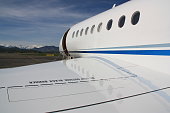coralmacghey8
About coralmacghey8
Private Plane Flights: An In-Depth Study of Their Affect And Advantages
Introduction
Private plane flights have turn out to be increasingly widespread over the previous couple of many years, offering a unique blend of comfort, effectivity, and luxurious. This research report delves into the multifaceted elements of private aviation, including its benefits, economic influence, environmental concerns, and the evolving know-how that shapes the business.

The Rise of Private Aviation
The growth of private aviation might be attributed to a number of components, including globalization, a rise in excessive-web-price individuals, and the desire for personalised journey experiences. In response to the National Business Aviation Association (NBAA), private flights account for a significant portion of the aviation market, with thousands of aircraft registered for private use within the United States alone.
Advantages of Private Plane Flights
- Time Effectivity: One in every of the first advantages of private flights is the time saved. Travelers can keep away from the long security traces, boarding processes, and layovers associated with commercial flights. With private aviation, passengers can arrive at the airport simply minutes before departure and fly directly to their vacation spot, often landing nearer to their remaining vacation spot than industrial airways allow.
- Flexibility: Private flights offer unparalleled flexibility in scheduling. Passengers can choose their departure occasions, change plans on short notice, and entry a wider range of airports, together with smaller regional airfields that may not be served by business airways.
- Privacy and Consolation: For a lot of, the privateness afforded by private aviation is a big draw. Enterprise leaders can conduct conferences in-flight with out the interruptions which may occur on industrial flights. Moreover, the comfort stage is typically a lot higher, with customizable amenities, spacious seating, and the flexibility to convey personal objects or pets on board.
- Accessibility: Private aviation opens up journey choices to distant locations that are not easily accessible by commercial airlines. This can be notably useful for enterprise journeys, emergency travel, or leisure journeys to exclusive locations.
Economic Affect
Private aviation significantly contributes to the economy. The business supports hundreds of thousands of jobs, from pilots and flight attendants to upkeep crews and airport staff. In accordance with the NBAA, enterprise aviation generates roughly $150 billion in economic exercise annually within the United States alone. Moreover, private aviation helps native economies by airport operations, gasoline sales, and hospitality services.
Environmental Considerations
Despite its benefits, private aviation has faced scrutiny relating to its environmental influence. Private jets usually produce increased per-passenger emissions than industrial flights. However, the industry is actively working in direction of sustainability. Many private jet operators are investing in more gasoline-efficient aircraft, exploring alternative fuels, and implementing carbon offset programs. The adoption of sustainable aviation fuels (SAFs) is a promising growth, as they can considerably cut back carbon emissions associated with flying.
Technological Innovations
The private aviation sector is undergoing rapid technological developments that improve security, efficiency, and the overall flying expertise. Key innovations embody:
- Superior Navigation Techniques: Modern aircraft are equipped with sophisticated avionics that enhance navigation, enhance security, and allow for extra efficient flight paths.
- Electric and Hybrid Aircraft: The development of electric and hybrid aircraft is on the rise, promising to cut back the carbon footprint of private aviation considerably. Corporations like Alice and Pipistrel are on the forefront of this movement, engaged on aircraft that might revolutionize short-haul flights.
- In-Flight Connectivity: Excessive-speed web entry and advanced communication programs are becoming standard in private jets, allowing passengers to stay related and productive while in the air.
- Cell Apps and Providers: The rise of technology has additionally led to the emergence of cellular applications that simplify the booking process, permitting users to charter flights with only a few taps on their smartphones. Providers like JetSmarter and Blade have made private aviation more accessible to a broader viewers.
The future of Private Aviation
The future of private aviation seems to be promising, driven by evolving client preferences and technological developments. The pandemic has accelerated the development in direction of private flying, with many former commercial travelers opting for private jets to keep away from crowded airports and ensure security.
As more folks change into aware of the benefits of private aviation, the industry is more likely to expand additional. The growth of fractional possession and jet card packages has made private flying more accessible to those who may not have beforehand considered it.
Challenges Forward
Regardless of its development, private aviation faces several challenges. Regulatory hurdles, high operational prices, and environmental issues are important elements that the trade must navigate. Additionally, the perception of elitism associated with private flying can result in public backlash, particularly throughout instances of economic disparity.
Conclusion
Private plane flights symbolize a novel section of the aviation trade that provides numerous benefits, together with time savings, flexibility, and privacy. While the environmental impact remains a priority, the trade is actively pursuing sustainable practices and technological innovations to handle these challenges. As private aviation continues to evolve, it can possible play an more and more vital function in both private and business travel, reshaping the way in which we think about air travel within the years to return.
No listing found.